Who is Joseph Camp?
The first time many of us got to know of Joseph Camp was when he went live on Facebook following the shooting of his brother-in-law, eighteen-year-old Jaylon Jones, earlier this month. Jones was shot by Belize City police following the murder of twenty-six-year-old Charles James on Tuesday, April 11, near his home on Consuelo Street in Belize City. Jones was later charged with James’ murder.
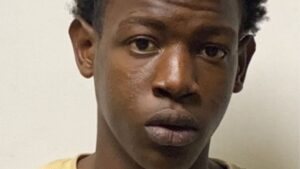
Jaylon Jones charged with the murder of Charles James
James was considered a respected member of the Belize Coast Guard. He was the nephew of the late Winston “Tanga” James, a figure known for his gang affiliations. However, Police Commissioner Chester Williams maintained that his murder was not gang-related and was instead driven by a dispute over a romantic partner.
When police arrived on the scene, chaos erupted. This led to a shootout between police officers and the suspects. Jones sustained a gunshot wound to the foot amid the chaos. But Jones’s family complained about his detention. They, including Camp, asserted that he was wrongly identified and had no connection to the altercation besides being caught in the midst of it. Camp decided to go live from the Raccoon Street Police Station, saying that his brother-in-law had been shot and that police officers were “purposely trying to keep him dead.” He also says that the police officers assaulted him. He repeatedly tells the officers that he is an American citizen. Camp was subsequently charged with spreading false news.

Joseph Camp appearing in court with Attorney Sharon Pitts.
He appeared in court in Belize City with his attorney, Sharon Pitts. He pleaded guilty and was ordered to pay a fine of six hundred Belize dollars or be sentenced to three months behind bars.
In one of his social media posts, he says, “Imagine the meltdown when they realize that it is $600bzd which is equal to only $300usd. Since I have no criminal history and very high and good character it was the minimal it could be.”
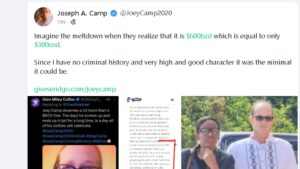
Joseph Camp explains that 600 Belize dollars is 300 US dollars.
Camp has a criminal history in the U.S.A. He was asked about it on Friday. He said, “In 2010, I was arrested for changing my grades at the University of Central Missouri. I thought that it would be easier to change my grades. The police thought it would be a felony. Three years later, I was acquitted of all of those charges, except for a minor offense.”
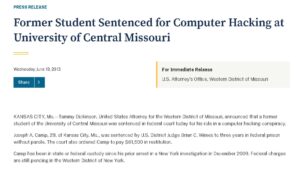
Former Student Sentenced for Computer Hacking at University of Central Missouri
According to the U.S. Attorney’s Office, Western District of Missouri, Camp was sentenced to three years in federal prison without parole for his involvement in a computer hacking conspiracy. Camp, along with Daniel J. Fowler, gained unauthorised access to the UCM computer network, obtaining sensitive information and attempting to alter grades and transfer money to their student accounts. They also developed a virus to infect UCM computers and remotely access webcams and email accounts. Camp pleaded guilty to these charges in April 2013. The court also ordered Camp to pay $61,500 in restitution.
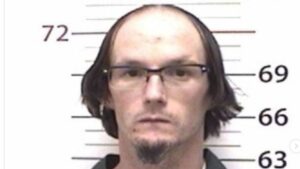
Joseph Camp’s mug shot.
Camp says he is a software developer.





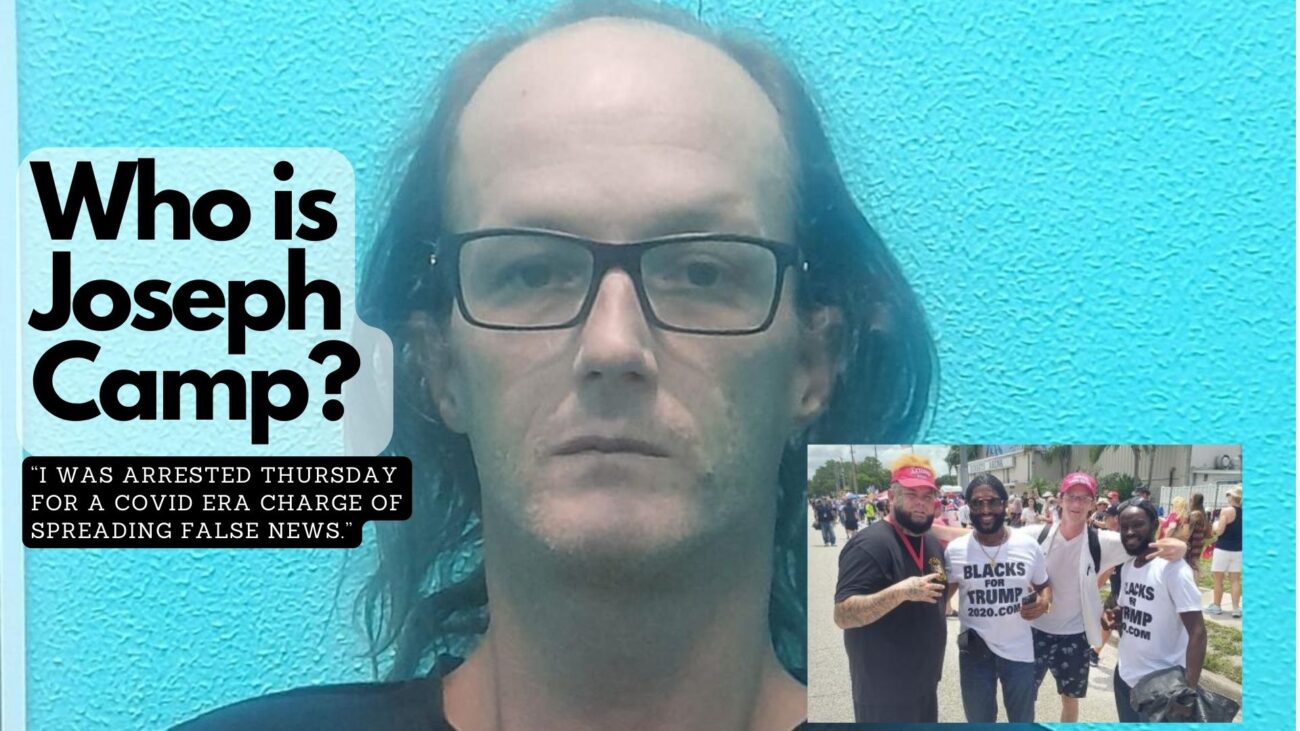

Facebook Comments